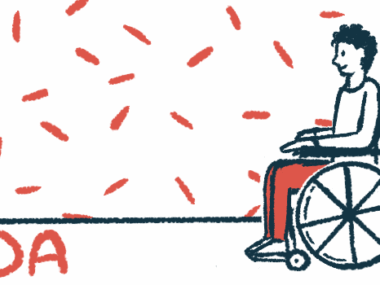Why patient advocacy is important for those of us with Duchenne
It's vital that our voices are heard and understood
Written by |

Last Saturday, I had the honor of participating in the third Singapore Health Patient Advocate Connection event (SPACe) hosted by the SingHealth Patient Advocacy Network (SPAN). As a cast member of the incredible SPANtastic Theatre plenary skit team, I not only had the chance to perform, but also to experience something deeply transformative.
Although I’ve been a member of SPAN since 2022, this event was the first time I’d become actively involved in its advocacy efforts, and it reminded me why patient advocacy is so essential — especially for those of us living with Duchenne muscular dystrophy.
I may not currently be a SingHealth patient, but SPAN welcomed me into its network with open arms. This embrace highlights a key aspect of patient advocacy: inclusion.
For me, as someone training to be an actor, the event also provided a fun opportunity to gain some nonprofessional acting experience through forum theater. In this theatrical form, the audience can step in and suggest solutions to social issues being portrayed.
Forum theater, with its interactive and dynamic nature, is a perfect fit for marginalized and oppressed groups. It serves as a platform where voices that often go unheard are suddenly empowered. Whether it’s migrant workers, people with disabilities, or others facing social barriers, it allows us to envision different possibilities for the future.
Reclaiming our voices
For those of us with muscular dystrophy, it’s not just about our physical limitations. While society may acknowledge the visible aspects of our condition, it often overlooks the neurodivergent traits many of us possess — such as attention-deficit/hyperactivity disorder, autism, or obsessive-compulsive disorder — and the emotional and psychosocial struggles that accompany our day-to-day lives. These invisible battles often make it difficult for us to feel accepted and understood, even by our own loved ones. This realization hit me during my time at SPACe.
Beyond the skit I performed in, I witnessed a riveting panel discussion featuring a burn survivor turned medical officer. Her journey from being a traumatized patient who’d received compassionate postsurgical care to becoming a doctor herself was inspiring. It showed how deeply a healthcare experience can shape a person’s life and journey.
Then there was a famous chef, a stroke survivor and fellow SPAN advocate, who shared her perspective on how healthy eating contributed to her recovery. And finally, there was a singer-songwriter who lost her voice because of a rare neuromuscular condition. Despite her adversity, she fought to recover some of her vocal function through therapy and now runs a ground-up initiative that uses music to bring hope to at-risk youth. These stories of resilience remind me of the impact patient advocacy can have on our communities.
As Duchenne survivors, our lives are often viewed through the lens of our caregivers. From a young age, our identities are shaped by those who care for us, and our voices can easily be overshadowed — especially in medical settings. In some ways, we are like Peter Pan, stuck in a perpetual state of childhood. Many of us never transition from pediatric care to adult neurology, and this perpetuates the perception that we’ll always be vulnerable, dependent children. Society, and even our own families, may struggle to see us as anything more than helpless. This lack of recognition of our individuality and autonomy can be incredibly disheartening.
I’m grateful for Muscular Dystrophy News Today, SPAN, and other platforms that allow me to express myself and have my voice heard. They give me the chance to step beyond the roles that society often assigns to those of us with Duchenne and assert my identity as a survivor and advocate. Growing up, our voices as patients often go unnoticed, but advocacy helps us reclaim those voices. It offers us a platform to share our experiences and to influence change within ourselves and in our society.
Patient advocacy is more than just a form of representation — it’s a source of prideful empowerment. For those living with Duchenne, advocacy enables us to transcend the narrative of being passive care recipients and become active contributors to our well-being and that of others.
I treasure my involvement in patient advocacy. It allows me to redefine my identity as someone who has survived and thrived through unique adversity, rather than someone who is merely enduring a set of tragic circumstances.
As I continue my journey of redemption, I’m reminded that advocacy is not just important, but vital. It’s how we make ourselves heard and understood, as well as how we work toward a world where everyone, regardless of their condition, is seen and valued.
Note: Muscular Dystrophy News Today is strictly a news and information website about the disease. It does not provide medical advice, diagnosis, or treatment. This content is not intended to be a substitute for professional medical advice, diagnosis, or treatment. Always seek the advice of your physician or another qualified health provider with any questions you may have regarding a medical condition. Never disregard professional medical advice or delay in seeking it because of something you have read on this website. The opinions expressed in this column are not those of Muscular Dystrophy News or its parent company, Bionews, and are intended to spark discussion about issues pertaining to muscular dystrophy.







Patrick Moeschen
"Society, and even our own families, may struggle to see us as anything more than helpless. This lack of recognition of our individuality and autonomy can be incredibly disheartening."
Well said my friend. I couldn't agree with you more and thank you for continuing to bring attention to this point....